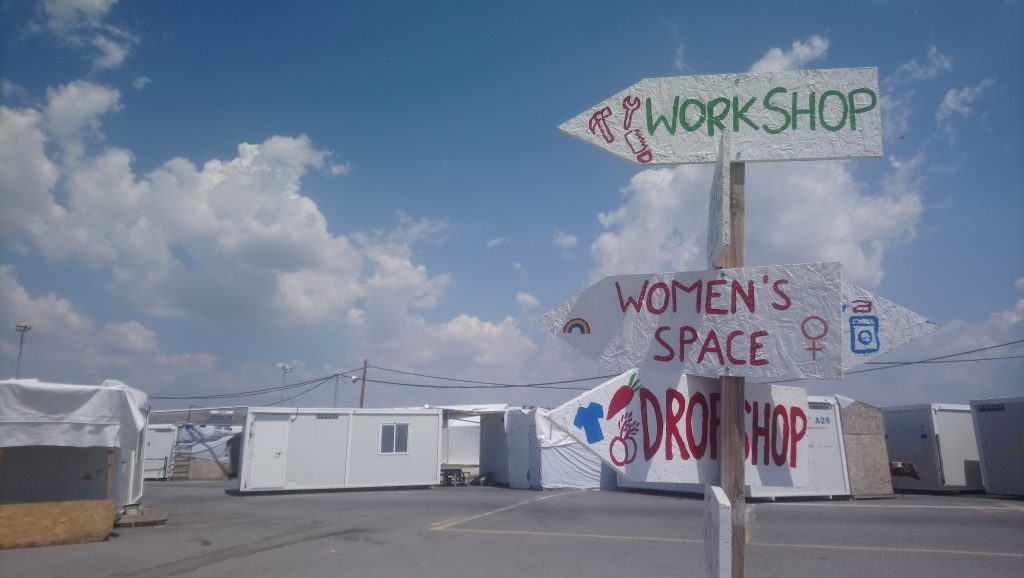
Erfahrungsbericht zum Download
https://andrea-koltermann.de/wp-content/uploads/2019/01/Nea-Kavala-15-Tage-im-Flüchtlingscamp-ein-Erfahrungsbericht.pdf

Erfahrungsbericht zum Download
https://andrea-koltermann.de/wp-content/uploads/2019/01/Nea-Kavala-15-Tage-im-Flüchtlingscamp-ein-Erfahrungsbericht.pdf
Women’s Space
Laundry
Gardening project
A friend had asked me to describe how people used to live at the camp and what their future prospects were.
Imagine a small village with one long street on a never used military airport runway. Along this road there are built about 160 containers.
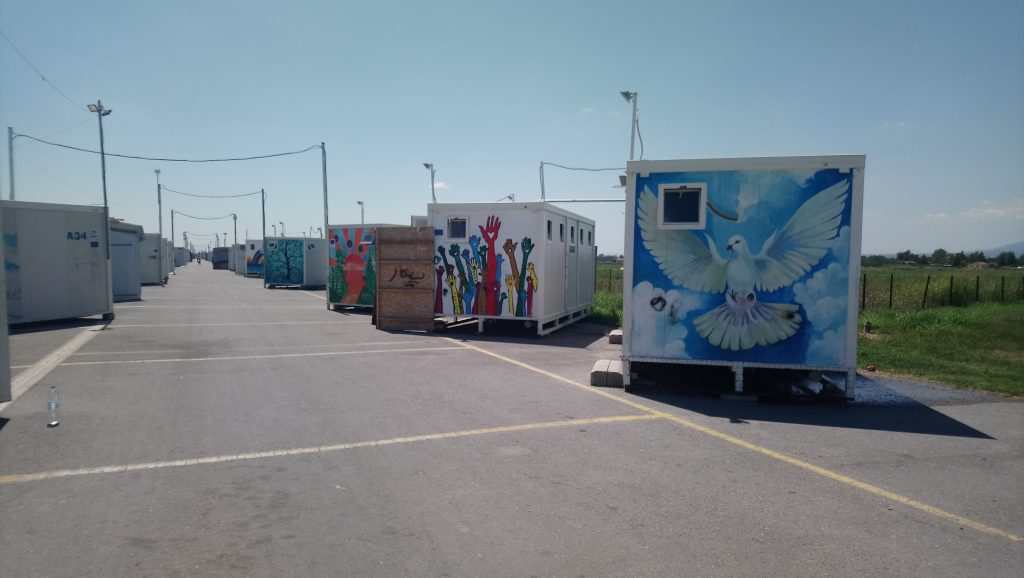
Syrian artists painted the sanitary buildings to give some colour to the tristness of the refugee camp.
A few weeks ago, they had added a big army tent with small sleeping cabins to give another 100 people space. At the camp there are lliving about 750 people.
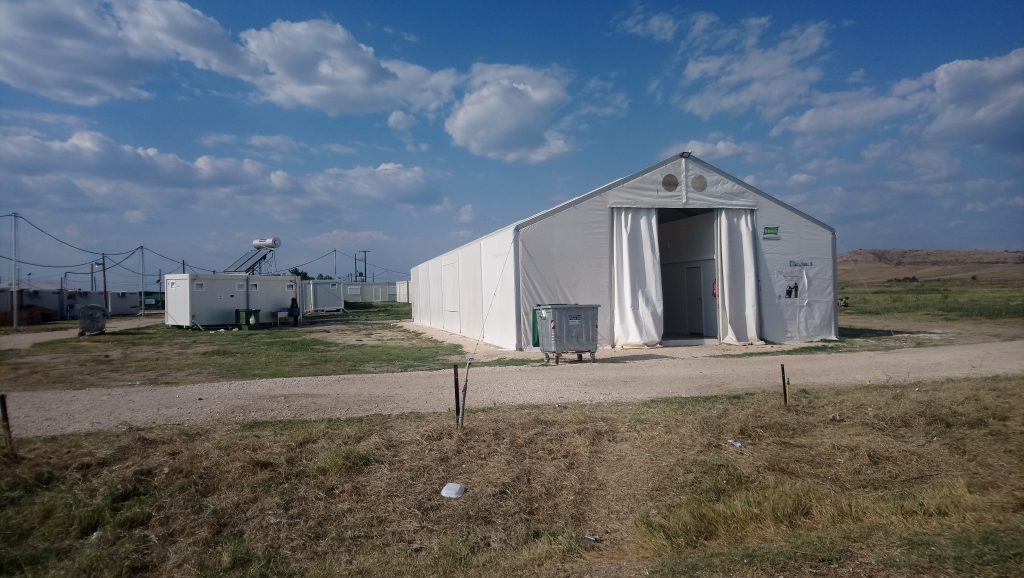
While I am taking some morning mood pictures, a man from Iraq comes to talk to me. He tells me, how difficult it was living at the camp. It would be dirty, he shows me that he was bitten by many mosquitos and he complains that there was almost no possibility to get medical help when needed. He had been over here for about two years waiting for documents to leave the camp.
I would like to help him if I could.
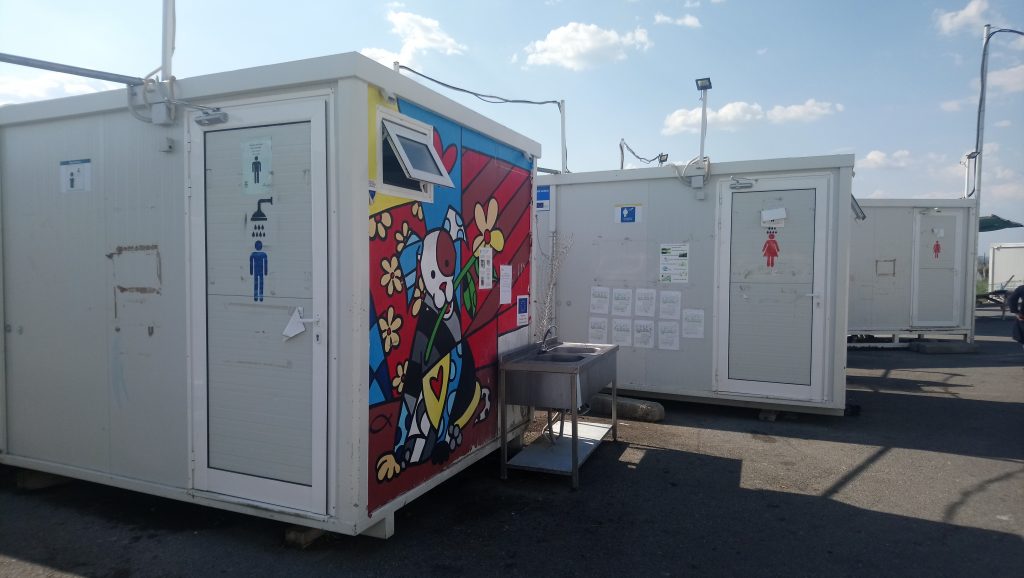
The service buildings are usually cleaned regularly but they are very scabby. The plumbing’s are rotten, they have many lacks. At some places the plumbs are missing, and the water runs to the ground.
The camp would need an installer to repair many of the pipes, but I’ve never seen anyone doing work like this.
This camp is meant to be temporary, so these little aesthetic repairs probably would never be done.
Because of this temporary concept there is not one flower planted in the whole camp.
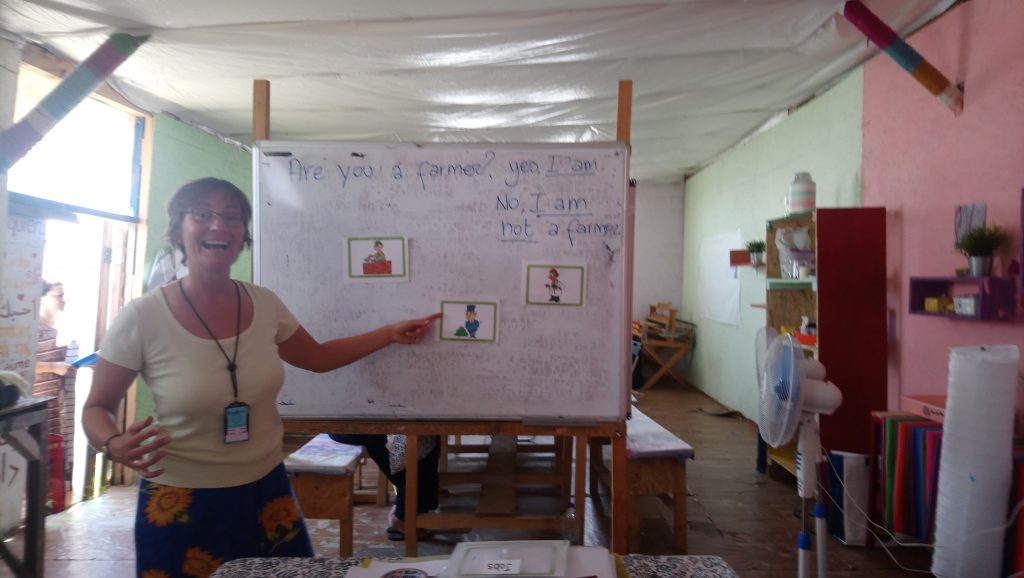
“I love giving English lessons at the Women’s Space.”
It is the second time for me to work at the women’s English class this noon. At the camp they offer English classes level one and two for women six days a week. Level three takes place in mixed groups for men and women. Only a few women visit them because often their husbands don’t allow them visiting classes together with other men.
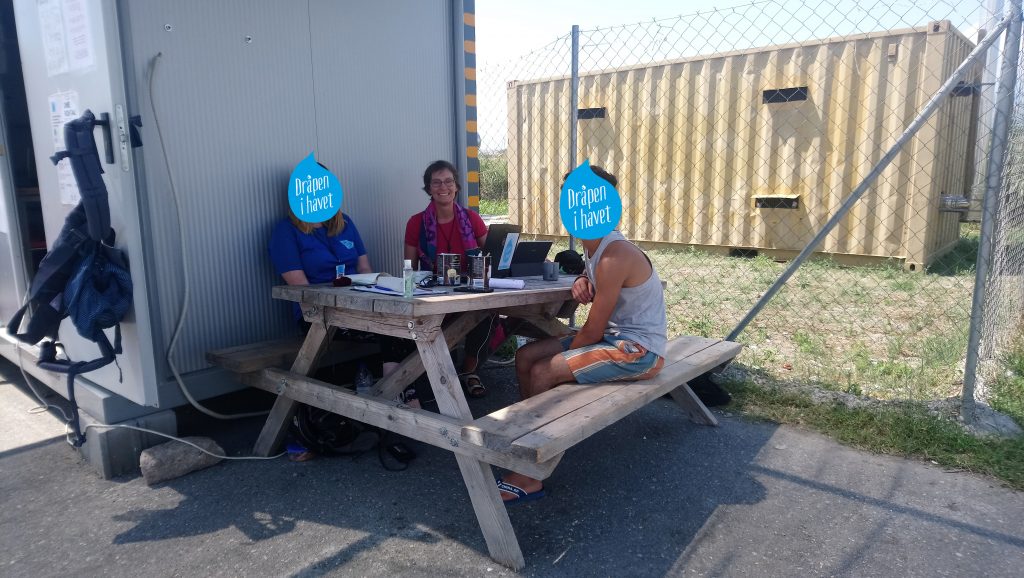
The afternoon I work at the laundry, that is one of my favoured jobs. As the days before many people, mostly young men come to sit next to us in front of the laundry. They like to talk.
Mostly done communication content is smaltalk, “How are you?”
“Where do you come from?”, ” How long have you been here?” The answer to the first question normaly is “fine, how are you?”. That like it’s used to in USA, I don’t know if people would do in their own language.
A young Syrian tries to communicate by speaking into his mobile phone and letting an online translator write a translation. That seems to be a good idea, but many times the translation doesn’t make any sense.
One guy was just returned from his language class at Polycastro and asks me to help him with his English homework.
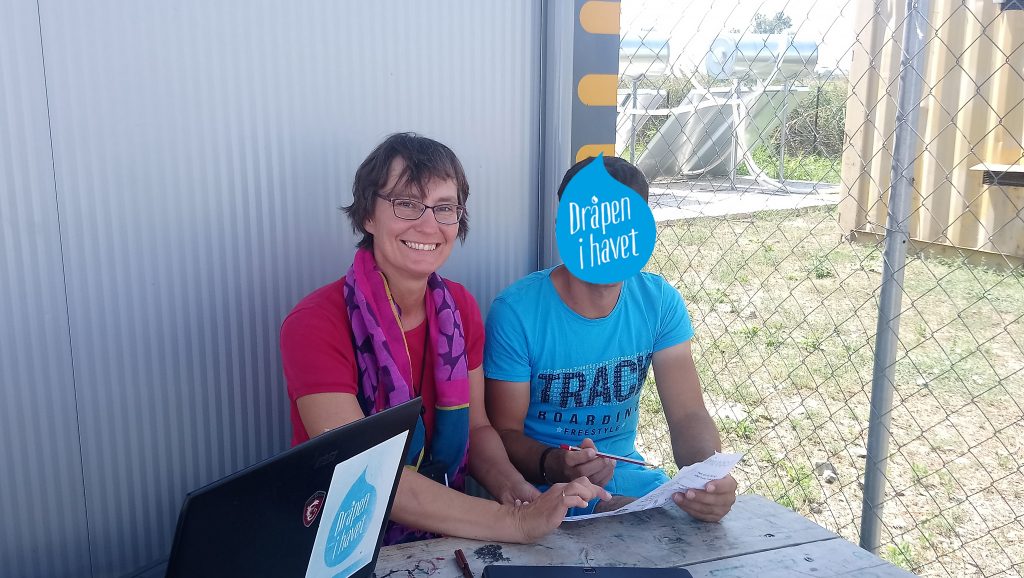
Bit by bit I’m starting to really like everyone around here. They are all so hearty. Among the inhabitants of the camp there are many children and young man in my sons age.
I think that many of these young men could get a job in Germany if they would ever get a visa. They are so polite, and they really would like to learn and to work.
The big difference between these young people and my own children is that my children have had a save childhood, and now they are grown up and just have to choose their way of living.
Icecold winds from Sybiria will bring a cold winter to Greece. Donations for blankets and sleeping bags:
https://www.facebook.com/donate/1959933580764422/10217188784373006/
Women’s Space
Gardening project
I was asked to help at the English classes that are organised by We Are Here, another organisation that works at the camp and Dråpen i Havet cooperates with.

They offer English classes for women in different levels and had asked me to help with filling the sheets and teaching pronunciation for the new ones and sometimes give them some private coachings to them who needed most.
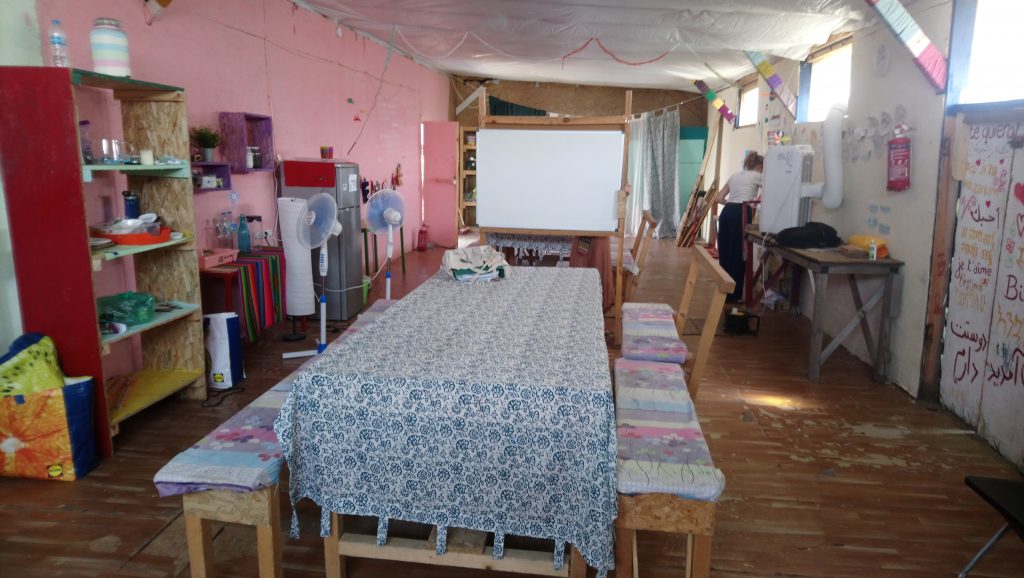
There are 22 women and teenage girls in the class and they have a lot of fun. Learning English is a big challenge for Arabic people. I understood this a few days ago, when a guy from Syria gave me a lesson Arabic weekdays. Arabic people use to read from right to left side and all their letters look different from our letters.
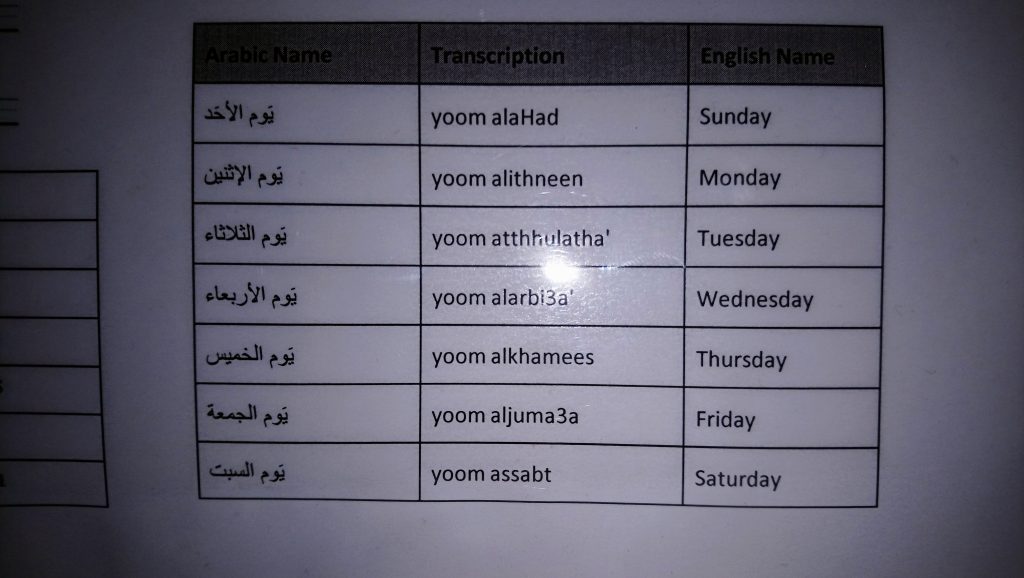
Usually the woman at the camp are very shy. Most of the time communication is mens task, but later that day I meet some women of the German class again. They are smiling, happy to meet me. Some even sway at me and call “hello teacher!”
I’m so happy about this and I’m really looking forward to the next lessons tomorrow.
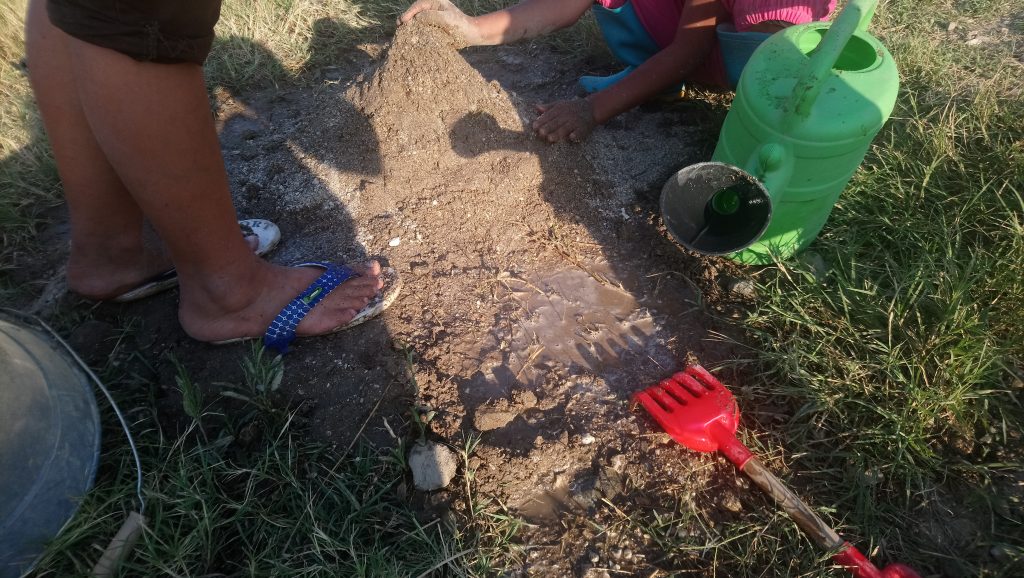
In the evening we do a gardening project with children.
It is so amazing to see the positive energy in so many of the people and children ! (S.L., volunteer from Norway)
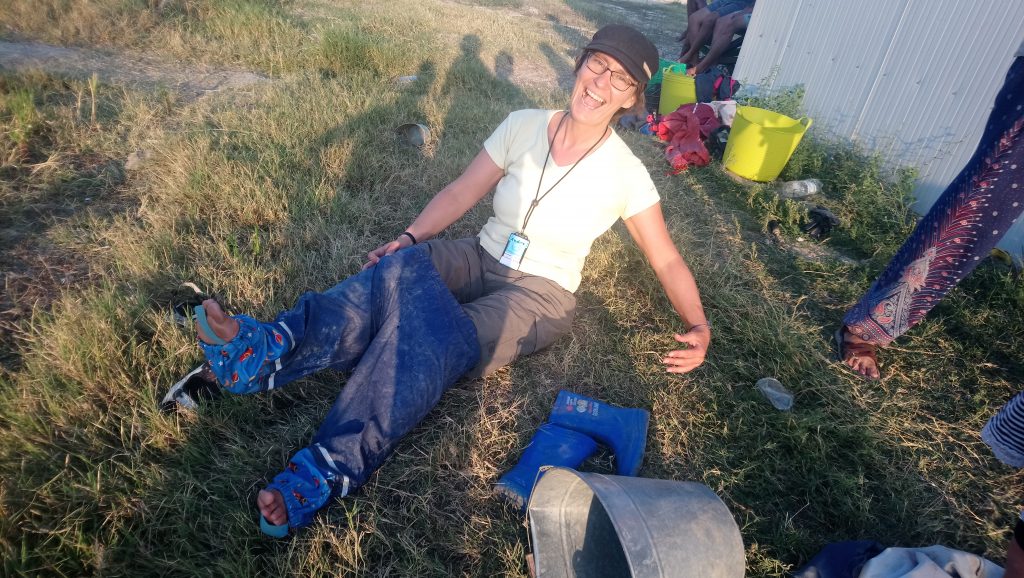
The children don’t want to get their clothes dirty. Also I don’t want to.
Do something together, burrow, play with water and make some buildings of sand, that’s a funny way to communicate even if you don’t speak any common language.
Children in Arabic cultures.
Growing up in an Arabic culture is very different from the usual experiences children make in our western cultures.
Often families use to live together in large families. Grandparents and older sisters take care for the smaller children. Having four or more children is not uncommon. In many families the women are 10 to 15 years younger than their husbands and start bearing children at young age.
Even very small children play outside the houses all day long. If something happens everyboby would help them. Communities take care for everyone’s wellbeing. Turned out of their family structure by the flight many people feel unsure in their parenting skills.